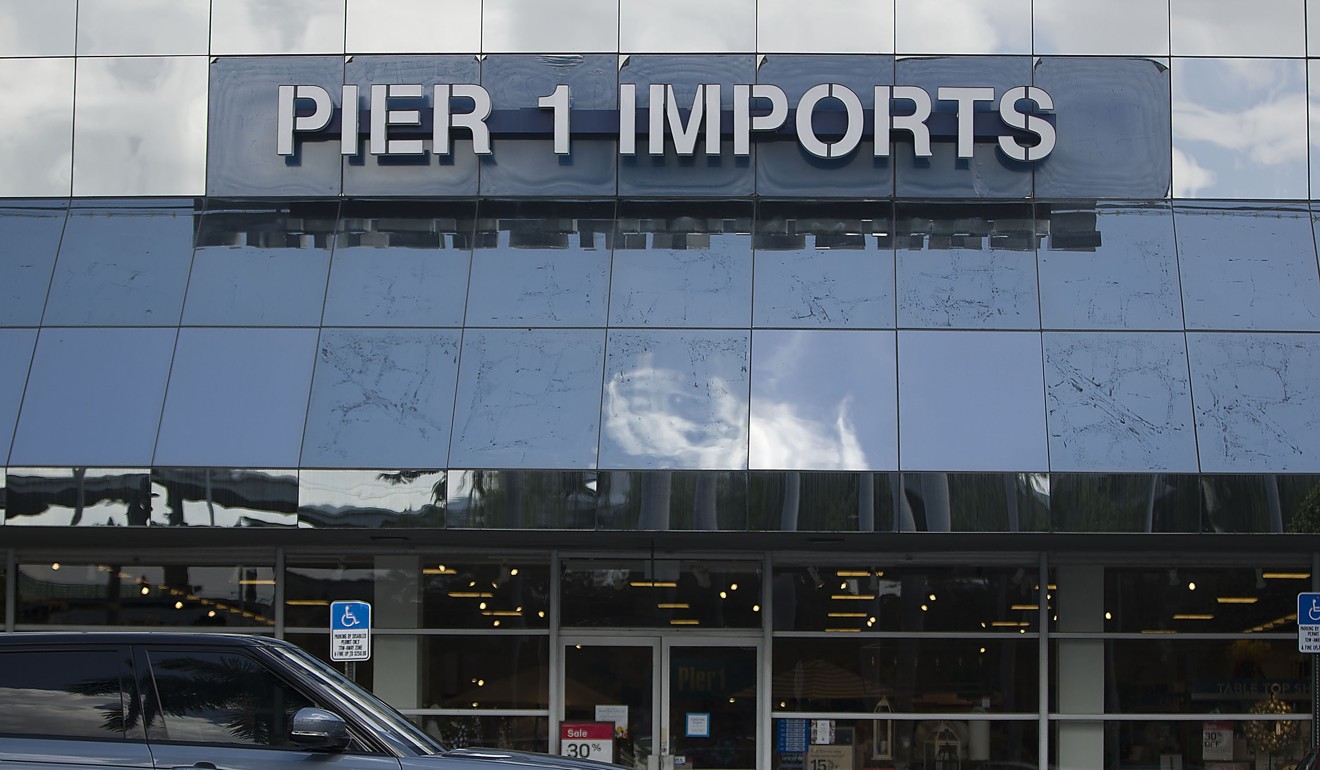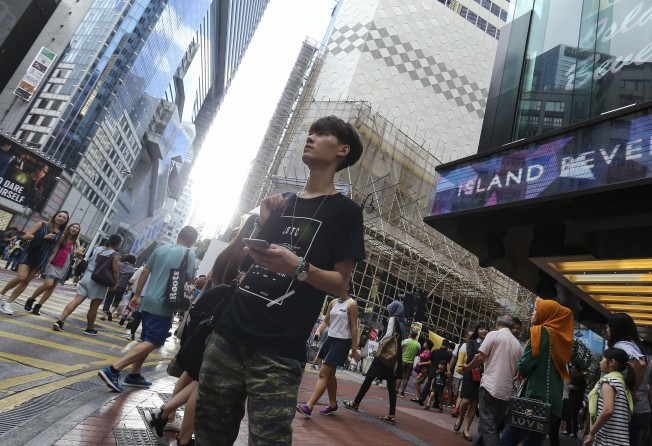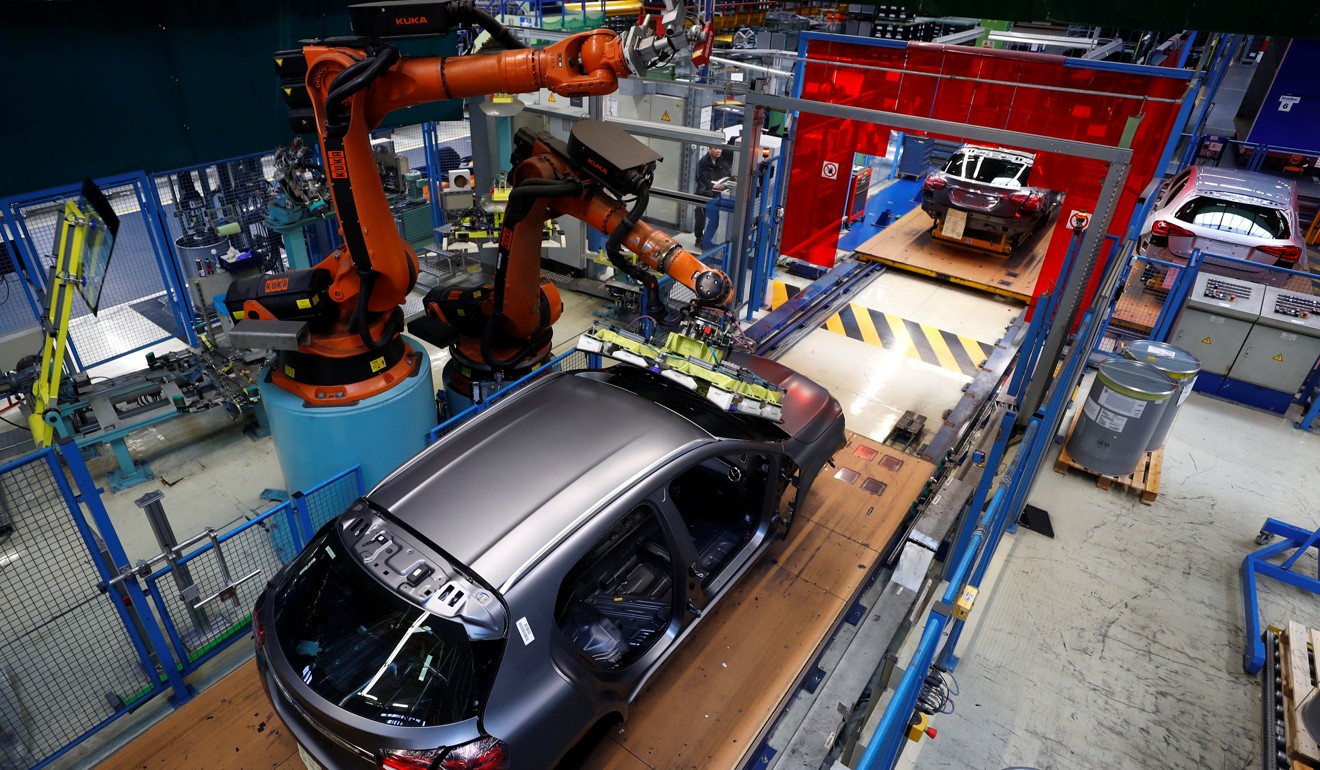
Hong Kong’s bubble has protected it from the disruptions of the digital revolution, but this won’t last forever
- Due to unique features of its economy and politics, Hong Kong has missed the tech upheaval rearranging the outside world. This won’t last, and our young people need to learn new life and business skills to thrive

In Hong Kong, we live in a bubble. Not a bubble that can be popped, but the kind that a patient lives in if they don’t want to catch an infection.
Not that Hong Kong is necessarily more sick than anywhere else – indeed, far from it, for our bubble is protecting us from a lot of economic hardship. It doesn’t take too long when travelling in Europe or the US to experience culture shock at how the world has changed.
Whole streets look tatty and disinterested, with every second outlet boarded up. Malls that were previously as busy as Elements or Festival Walk are deserted, with stalls hawking cheap goods outside closed shops. The remaining retailers survive by being charity shops, fast food or discounters. There is an overwhelming sense of being hard up – no one has much extra money.
The famous UK department store Debenhams has just closed half its stores. The notable decline of the department store has provided big commercial property voids across the country, with 235 former department stores now empty; up from 82 in 2014. The large spaces are surprisingly hard to fill, especially if they are outside core locations. Some have been turned into charity centres, such as a community hub for the elderly. Others have been made into galleries, exhibition halls, low budget bargain stores, crazy golf or enterprise hubs for start-up businesses.
None of this is particularly commercial although, in the right locations, they provide cheap real estate for gyms, offices, hotels, restaurants and housing. Some grand buildings have been turned into dull warehouses for dispatching goods. Shoppers are leaving physical shops in droves.

One of England’s most famous department stores is John Lewis, which runs itself as an employee partnership set up by the eponymous founder to share profits among the staff. As a result, they have always had some of the most knowledgeable and well-presented employees on the High Street to help the shopper. I went to buy a small item there last year and was told it was not available in-store – but it was available on their website. Bricks and mortar shops are becoming just a product showroom with less need for an army of well-trained staff.
The massive disruption caused by the digital revolution is every bit as powerful as the industrial revolution of the 19th century. The early tumult was seen in industries like broking, travel, bookshops and hotels. The more recent disruptions have been less visible but more insidious and widespread – causing a silent, devastating change in ordinary people’s lives.
This has made the general population financially poorer than 20 years ago. The deskilling of staff because of technology means that labour has lost much of its power to the owners of capital, with little improvement in work or pay over time.

If the internet has killed bigger-ticket shopping, the consolidation of supermarkets (like Aldi, Tesco and Walmart) have destroyed the local bakery, butchers, florist and fruit and veg shops with their experienced owners and social interactions. Independent shops are now purely for convenience; selling essential supplies, like milk and bread, alcohol and cigarettes, lottery tickets and pay-as-you-go services for people with little spare cash.
These historical economic changes have encouraged voters to lose their ideological compass. This week’s elections in Spain saw the socialists reinforced – not because people are more left wing, but because difficult economies, lack of choice and the rise of the hard right has scared people to vote tactically.
Spain’s socialist politicians will almost certainly make things worse by borrowing to spend on the declining parts of the economy – not the new ones. This will increase debt secured against low-producing assets and inject more turmoil into the European Union.

What disrupted economies need, and what America was previously good at, is economic and social mobility. This allows people the hope of being able to work themselves out of the stagnant trap of toiling long hours for just enough to pay for the next day. Politicians can help lay out the tapestry, but each individual will have to take on the responsibility of making themselves mobile. It’s every man (and woman) for themselves. Education alone is no longer a guarantee of a properly paying job. The future labour force will need good attitudes and work skills – for it is “skills” for which people get paid; not education.
China has missed a lot of disruption so far as its economy has come on stream at the same time as the digital revolution. Hong Kong has largely escaped by being a closed services-based economy. Our slow adoption of disruptive technology has been encouraged by the status quo of public and private vested interests that stifles innovation and limits competition in our city.
But we can’t resist it forever. Young people entering the job market should be advised that education is just the starting point – those who collect life and business skills will be of more value in tomorrow’s economy.
Richard Harris is chief executive of Port Shelter Investment, and is a veteran investment manager, banker, writer and broadcaster, and financial expert witness